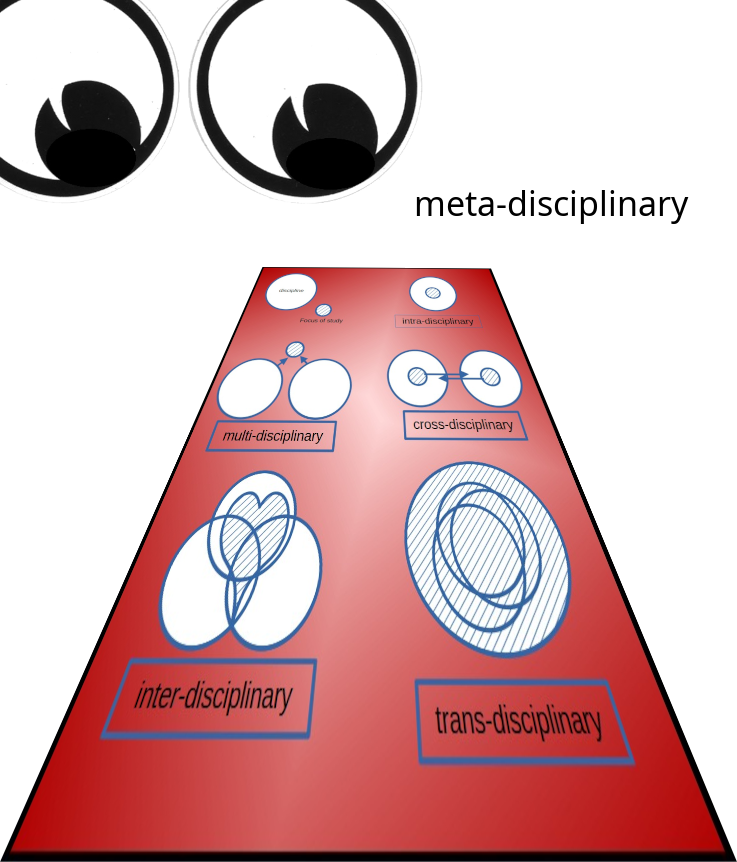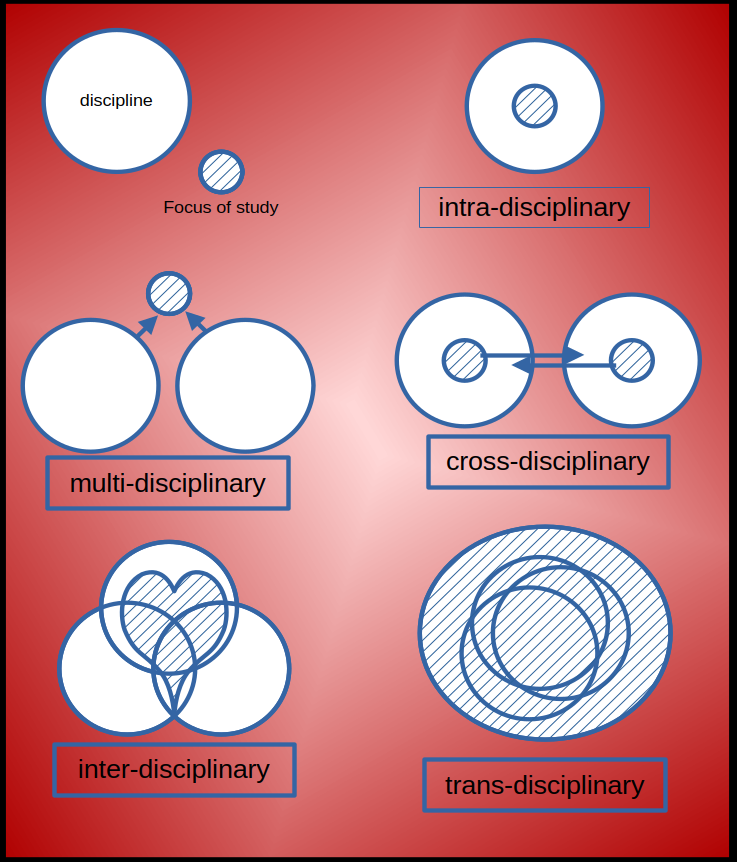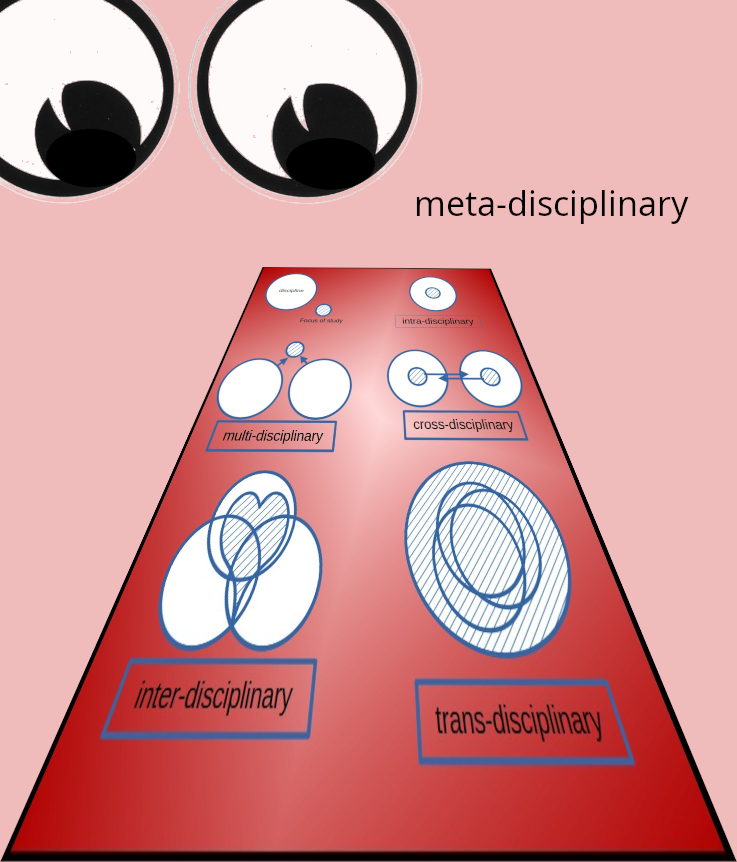The reader as a trade

"Is there, in fact, such a thing as the specialization of the generalist?"
Bill Ward asks this question after describing their own reading style and their attitudes towards those who read in a generalist manner and those who read with a special focus. Go read it, SPECIALIST AND GENERALIST READERS. It’s from 2009, it deals with the question from the point of view of a market of such readers, and how writers who write outside their platform cope by writing under a variety of names, one for each platform.
Bill doesn’t answer their question there, and ends his piece by wandering off to a party as a living embodiment of a witty conversation piece because of his preferred reading.
I found the post after sitting down to do some research on the same question, if framed slightly differently: Should we actively form a speciality of the generalist reader? Could one specialise in this as a trade? (or perhaps guild is a better association type here).
The quick take on this is that we do have them already, we call them journalists or reporters. Or this is the job of any liberal humanities degree, and we will just ignore Snow’s two cultures critique. Or three.
As well both lawyers and engineers will put their hat into the ring for this appellation.
There is no such thing as a general reader.
This warning is commonly found in advice for writers, it is another market based piece of experience or trade-lore. The general reader was an invention of the late Victorian and early 20th century mass market book trades, it referred more to the expectations of what a reader with a general education could read, with generally gained education levels of a middling sort. This ‘general reader’ in this discussion lies at 90 degrees to this conversation.
These days one might say the general reader does not read at all. In the USA there is a society thereadingleague.org to encourage reading per se.
I found these distractions while worrying about the difference between a generalist and a general reader. The general reader is best thought of as a median or mean of the markets of readers who buy books, who buy new books. It is definitely a safe mindset for would be writers to think of that possibility, “people who buy new books”, as not existing— in terms of income growth at least.
Or, a general reader is what a librarian might have to imagine, when using their professional empathy in wondering what it is their clients wish to borrow, so the library not just just an archive.
Interdiscipinary dimensions
I soon realised that discussing the generalist-reader-as-a-speciality would have to include academic and scholarly work, and this includes a vast literature on research in education on learning to read, right through to how we develop as readers as we attend to our specialities in higher education. An area where the reader outgrows the pedagogy of the general reader, but whose sophistication is then corralled by their speciality. Different sciences introduce that sophistication in reading at the leading edge of research at different stages, the hard sciences do it later.
See ‘Disciplinary Literacies in STEM: What Do Undergraduates Read, How Do They Read It, and Can We Teach Scientific Reading More Effectively?’, Higher Education Pedagogies. And ‘How Do Readers at Different Career Stages Approach Reading a Scientific Research Paper? A Case Study in the Biological Sciences’, International Journal of Science Education, Part B.
Katherine Hubbard also makes the comment that even in humanities concerned with reading, e.g. English Literature, there is not a lot of conscious effort put into this reading of English used outside of ‘literature’ per se. In the sciences its reading/writing expectations are tacit, and just picked it all up along the way, like, I would say, in any apprenticeship. And some argue it should be that way. A death-knell for the generalist reader as a trade.
Interdimensionary disciplines
In addition there is work on interdisciplinary specialities, and this was good to read because the whole question “Should we actively form a speciality of the generalist reader?” grew out of a sense that current approaches inter-multi-cross-trans-disciplinary (C.P. Snow’s Two Cultures gap again, at least) were just not getting us there. I even found a taxonomy of different types of interdisciplinarity. The first one was by an architect wondering about exactly the same thing whose original framework is ‘environmental psychology’, whereas mine is ‘social ecology’.
See Archontia Manolakelli’s 2022, ‘Inter, Multi, Cross, Trans, & Intra-Disciplinary: What Is the Difference and Why Is It Important?’, ArchPsych. Retrieved 18 April 2025 from https://www.archpsych.co.uk/post/disciplinarities-definitions.
Archontia Manolakelli gives the taxonomy a nod of acknowledgement:
This article is based on Marilyn Stember’s (1991) paper entitled “Advancing the social sciences through the interdisciplinary enterprise.” which I came across in Alexander Refsum Jensenius’ (2012) blog as I was searching for a more tangible definition of the differences between the terms. Stember (1991, p.4) proposes the following definitions for each of the terms, to which I have added some examples that relate to architecture and the built environment where possible. [wouldn’t this be better as a git repository forking away??? See below]
Here’s my version of the state of the blob.

a taxonomy of inquiry of mashing the disciplines
Traditionally that last one 'trans-disciplinary' is the work of philosophy, at least as the mother of all science and humanities which have then split off into their specialities (this is why I call it a taxonomy). And I argue is another example of the worlding urge to should, too order, to investigate, to teach, to record, to argue, to socially facilitate responses to the world.
And here is also a warning for us, any generalism-as-a-speciality could end up like the worst of philosophy metaphysics or gnostic paranoia whose outcomes are fascism in the name of…
I’d like to add a very 80s addition to this taxonomic stable with the word ‘meta’. You may have come across the term later than the 1980s, I know Mark Zuckerberg is younger than me.
You’ll note that the Venn-diagrammatic illustration contains a arrow or two which outlines the point-of-view, it orientates the disciplinary hybridity by the area under study, and the disciplines and their cross-talk are tools in approaching that area of study or investigation. There is a vector there.
If that diagram represents the area under study for this post, then this question is a meta-disciplinary (or perhaps to make it really bad it is a META-(inter-trans-cross-intra-multi)discipinary effort.

And now you can see how there is a confusion between them all, from this perspective they can all just get called interdisciplinary. And it is this unsophisticated mishmashiness which Stember 1991 seeks to distinguish. (And then I come along to try and undo all that classification as a meta-taxonomist with the idea of the blur (particularly as a methodology to engage in the taphonomy of our categories social and creative (or generative?), and do so in the name of better frameworks, or at least, less dogmatic unexamined assumptions.)
Given that we do not teach directly how to read within a speciality, and neither do most English literature course teach how to read more generally, like a paper in the sciences, how can we do so in a generalist speciality with any sophistication. We are all on our own and can barely describe the issue? Where are our champions, where are our conventions, where do we argue about this, in order to facilitate a socially innovative response??
So here I am on my blog.
Reading the science essay book
I read a lot of popular science books, but more at the science essay end, where a writer has an idea and wishes to back up the idea with some broad research discussion, or where a researcher wants to make their work more available, because no one has drawn together all the papers on the subject and there is a new consensus emerging in a discipline, or maybe just how wrong the current working consensus is. I tend to read less pop science introduction books.
They are cross-over books in the sense that wider familiarity with the researcher as book writer can boost their career opportunities with the academy. Jut as a good science writer leverages the science to create a science-based writing platform.
In the book trade there is also a difference between the academic and the scholarly, I know they sound the same but, the scholarly are more dedicated to their specialties. The academic has one eye on the general reader (who does not exist).
My selfish gripe as a reader of these essay books is that they can spend pages going over the basics of an area. This is fine if the reader as a “general reader” has not read a lot on that subject then the introduction is very useful, but if it is your tenth book on recent evolution of Hominid evolution, a primer on evolution per se is not always worth the effort to re-visit. So I tend to skip those bits and wish there was some way to fork books and just add your book hook bit to the common thread.
Perhaps wikipedia is the example here, as a base that one forks from to answer a question like “should we create a speciality of the generalist reader?”
But this issue of redundancy in the books one might read in a subject, really depends on each readers’ width of reading. As opposed to depth.
My recent reading & review/reactioning of Joseph Henrich popular books (see ONE, TWO, THREE-ish) was an excellent introduction to the work of statistical data in anthropology (with not very many numbers in my face) as it covered a wide area of research I was unfamiliar with. Given that it deals directly with how people world, how they divide up the world and thus measure out their societies’ roles, as a self in their world of other selves, it is directly pertinent to moral philosophy malarkey, especially if one tires of the minecrafting of logical duties and their axiomatic imperatives, and so are of great interest to me.
Reading papers
Papers on the other hand go too far the other way, deep within their speciality’s key performance indicators, and do so for the sake of brevity which saves us all time, as much is assumed, for quite correct reasons, but from the viewpoint of a generalist reader, it can be a bit hard. It is up to reader to get up to speed on them. It takes time. (Looks sideways at AI).
As an example of an outsider writer reading speciality papers (part of my generalist reader remit) I am currently working my way through a list of papers that cover morality in reference to evolution. I have a linkpost page. And as I say there I often just stop reading them when I get to some obviously large disagreement with them or whatever they say begins to look very predictable and if not wrong, or I have heard it all before. So I stop when ever the trajectory of argument becomes too predictable, which means it can be well-argued but I don’t think the logical minecrafting gets us anywheres useful. The solution space discourse presented it is exploring is a dead end.
In researching this reader or reading issue, I found an interesting paper that explores how readers with differing expertise or sophistication look at papers, it also maps a variety of ways to move through a paper. People jump about the sections, and do so in different ways based on their familiarity and their training. That paper Hubbard, Katharine E. et al. 2022 maps those movements.
It is interesting that reading, and I would guess, writing a paper is not in the order which ancient orders of rhetoric prescribe as out standard. Of course it is assumed by the reader, because it makes it easier to jump or job about if you know the traditional layout in your speciality.
Bloggers not so much.

How would we write for the generalist-reader-as-a-speciality
Would any one ever write directly for the generalist reader as a class or segment or…? On the one side are the research papers, they have their own history and sophisticated readers don’t read them as presented.
The science essay books are close to answering the question, and are written to the interested general reader (who does not exist) so perhaps these can be re-worked towards a format or genre for the active generalist reader. Perhaps based on wikipedia & git repository forking by name (author or team). I’ve actually considered using git repositories instead of blogging platforms, but accessibility would be harsh. Might work for more pedagogic textbook replacements, at last for curriculum developers (meta-teachers for those who think I am referring to coders per se). Maybe they exist already, I have not looked.
References
Goldman, Susan R. et al. 2016. ‘Disciplinary Literacies and Learning to Read for Understanding: A Conceptual Framework for Disciplinary Literacy’, Educational Psychologist 51(2): 219–46. https://doi.org/10.1080/00461520.2016.1168741
Hubbard, Katharine. 2021. ‘Disciplinary Literacies in STEM: What Do Undergraduates Read, How Do They Read It, and Can We Teach Scientific Reading More Effectively?’, Higher Education Pedagogies 6(1): 41–65. https://doi.org/10.1080/23752696.2021.1882326
Hubbard, Katharine E. et al. 2022. ‘How Do Readers at Different Career Stages Approach Reading a Scientific Research Paper? A Case Study in the Biological Sciences’, International Journal of Science Education, Part B 12(4): 328–44. https://doi.org/10.1080/21548455.2022.2078010
‘Interdisciplinary Studies Handbook - The University of Sydney’. NSW. Retrieved 18 April 2025 from University of Sydney Handbooks - 2019 Archive https://rp-handbooks.sydney.edu.au/handbooks/archive/2019/interdisciplinary_studies/index.html.
Krauss, Lawrence M. 2009, September 1. ‘An Update on C. P. Snow’s “Two Cultures”’, Scientific American. Retrieved 18 April 2025 from https://www.scientificamerican.com/article/an-update-on-cp-snows-two-cultures/.
Lawson, Brandi. (n.d.). ‘What Is the Science of Reading’, The Reading League. Retrieved 18 April 2025 from https://www.thereadingleague.org/what-is-the-science-of-reading/.
Manolakelli, Archontia. 2022, March 18. ‘Inter, Multi, Cross, Trans, & Intra-Disciplinary: What Is the Difference and Why Is It Important?’, ArchPsych. Retrieved 18 April 2025 from https://www.archpsych.co.uk/post/disciplinarities-definitions.
Smith, Reid et al. 2021. ‘The Role of Background Knowledge in Reading Comprehension: A Critical Review’, Reading Psychology 42(3): 214–40. https://doi.org/10.1080/02702711.2021.1888348
Stember, Marilyn. 1991. ‘Advancing the Social Sciences through the Interdisciplinary Enterprise’, The Social Science Journal 28(1): 1–14. [https://doi.org/10.1016/0362-3319(91)90040-b] [Via Manolakelli 2022]
‘The Challenge of Quantification: An Interdisciplinary Reading’. 2024. ResearchGate.
‘There Is No Such Thing as “the General Reader” OK?’ 2016, November 22. Alison Jones. Retrieved 15 April 2025 from https://alisonjones.com/there-is-no-such-thing-as-the-general-reader-ok/.
WD, Sandrina. 2022, March 31. ‘What Are the Benefits of Doing the Interdisciplinary Reading?’, Medium. Retrieved 18 April 2025 from https://medium.com/@sand.ds1328/what-are-the-benefits-of-doing-the-interdisciplinary-reading-160703f91255.
Ward, Bill. ‘Specialist and Generalist Readers – Black Gate’. 2009, October 30. . Retrieved 15 April 2025 from https://www.blackgate.com/2009/10/30/specialist-and-generalist-readers/.
Wikipedia:
‘General Reader’. 2025, February 10. https://en.wikipedia.org/wiki/General_reader
‘Interdisciplinarity’. 2025, March 19 https://en.wikipedia.org/wiki/Interdisciplinarity
Crossposted at whyweshould.substack.com
Other pieces on reading.
